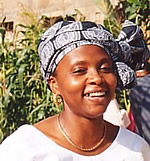By Brenda Zulu Matongo Maumbi, a Zambian radio journalist, initially saw blogging as an adventure. “I was writing whatever came to my mind without any real set objective or target,” he said. “I have been working as a broadcast journalist since 2001 and I was lucky to have been exposed to the computer and internet right from the early days of my career. My […]
Trends
eWaste management needed
By James Waititu and Reuben Kyama, Nairobi, Kenya Three years ago at a rural school in Kenya, students gathered in a lab to admire with awe newly installed computers. The arrival of the new technology generated great interest and expectations – thanks to a generous firm which donated the machines.
eLearning helps provide crucial health knowledge
The RHL was developed within the World Health Organization’s Programme to map Best Reproductive Health Practices and is the key tool used to disseminate evidence on the effectiveness of health care interventions within this Programme. The RHL has over 15,000 subscribers worldwide and many more users, and the WHO distributes over 20,000 CD-ROMs annually in English and another 10,000 in Spanish in low-income countries. […]
Digital project heralds new dawn for African libraries
Digital libraries can open up more ways for research, teaching and broader public discussion in Africa hopes Dr. Siro Masinde, who works as the Regional Coordinator for Aluka, a non-for-profit initiative that is building a digital library with emphasis on primary source materials from and about Africa. Africa has its own rich natural and cultural heritage as well as traditional knowledge and information systems […]
Mobile Learning – A Bit Different
There are 18,000 refugees currently living in the Mwange refugee camp. Apart from a library, schools, a clinic run by the Zambian Red Cross and several community activities, the camp offers a computer centre with 10 laptops. Francis Numbi, who works full-time as the co-ordinator and trainer at the lab, names lack of Internet access at the Mwange refugee camp as the biggest gap […]
Business training for women by women using ICTs
Radio penetration is relatively high in Cameroon. With about eighty percent of the households having a radio, it is the most common communication technology in the east African country. Compared to computer penetration – which is quite low – radio can provide excellent educational opportunities. Protege QV, a Cameroonian organisation working for the betterment of the community through information sharing, trainings, and research, […]
Social networks for education
Social Networks exist on many levels and in a variety of orientations, from family or dating networks over business circles up to national or international interdisciplinary contact networks. People within these networks share ideas, contacts and opportunities for many different reasons. The idea behind social networking is to benefit from the variety of different sources, instead of uniting them for one single goal as […]
Open Educational Resources for African students
The Open University has more than 200,000 students registered in its courses. Since its foundation in 1969, the University has pursued a social justice mission to open education to all. OpenLearn, a £5.65 million project, was generously supported by a grant from the William and Flora Hewlett Foundation which has been a leading investor in the area of Open Educational Resources over the past […]
Sustainable human resource development in Africa
Dr Kenneth Keirstead is of South African origin and a graduate of the Pathology Institute in Halifax, Nova Scotia. He also graduated from two advanced education institutions in the US in executive management (College of William and Mary and Columbia University). After more than three decades in senior research and management positions with multinational companies, he specialised in public health care policy, followed by […]
Online learning resources for agriculture and natural resources management
The CGIAR was created in 1971. Today more than 8,500 CGIAR scientists and staff are working in over 100 countries, addressing every critical component of the agricultural sector including agroforestry, biodiversity, food, forage and tree crops, pro-environment farming techniques, fisheries, forestry, livestock, food policies, and agricultural research services. Thirteen of the Centres are headquartered in developing countries.
























